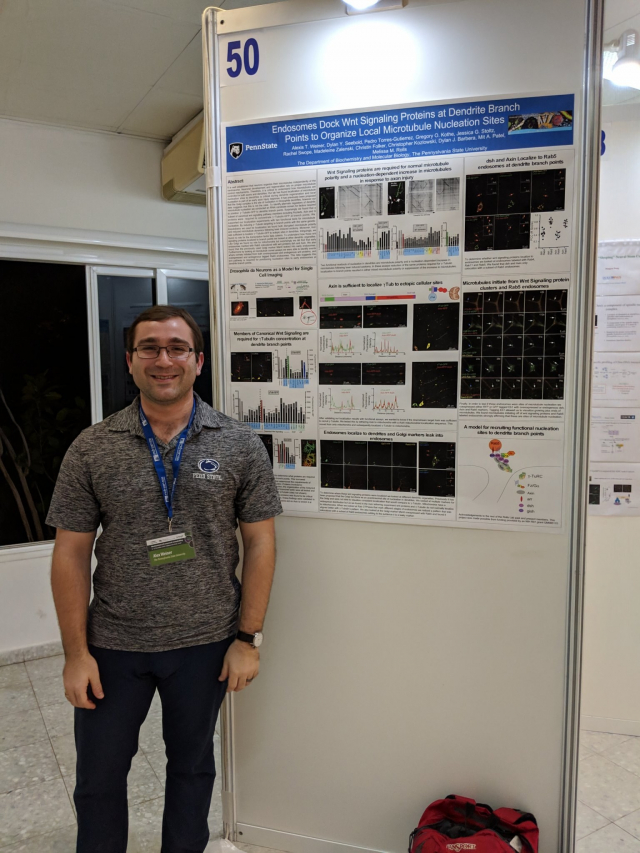Dec 17, 2018
MCIBS student Alex Weiner takes home international poster award
"Endosomes Dock Wnt Signaling Proteins at Dendrite Branch Points to Organize Local Microtubule Nucleation Sites" won first prize at the 2018 Mechanisms of Neuronal Remodelling Conference in Ein Gedi, Israel.

Alex Weiner, a PhD student in the Molecular, Cellular, and Integrative Biosciences program, was awarded top honors at the 2018 Mechanisms of Neuronal Remodelling Conference in Ein Gedi, Israel.
His poster, "Endosomes Dock Wnt Signaling Proteins at Dendrite Branch Points to Organize Local Microtubule Nucleation Sites," won first prize at the conference, and explained how his work helped to decide an academic disagreement between his mentor, Dr. Melissa Rolls, and another research team.
"The Rolls lab's fundamental cell biology research centers on understanding how microtubules are organized in post mitotic neurons," said Weiner. "One key difference between how neurons organize their microtubules and most other cells is that they do not use the centrosome as the primary microtubule organizing center. Dr. Rolls discovered this early in her career at Penn State.
"In 2012, another research group that has overlapping interests with the Rolls lab published a paper that said the Golgi was the major source of microtubules in dendrites and that it had stepped in for the centrosome in these cells. Our group, having looked at the Golgi previously, did not really believe this. In 2014, we published a finding that the Golgi was completely dispensable for microtubule organization in dendrites. However, the field did not really take well to this new finding, and many researchers in other institutions pursued studying the Golgi as a site of microtubule organization in neurons. When I entered the lab as a graduate student in 2015, my primary project was to figure out the actual site of microtubule organization. Through a lot of work and many years, I have finally discovered a new pathway to place microtubule organizing materials at a specific location in dendrites (the dendrite branch point)."
"This award means a lot to me because it shows that the field is recognizing that the paradigm that is in place might be wrong. It showcases years of working upstream against the current of what the field accepts and to be able to win not only first prize but respect of my future colleagues is amazing."